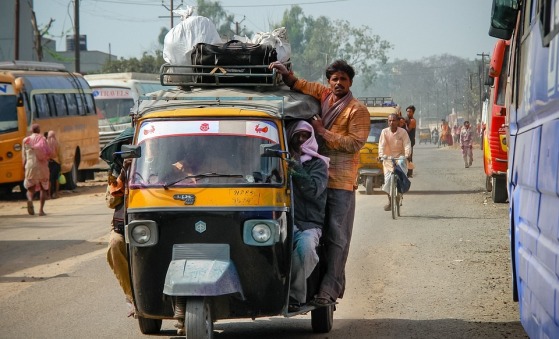Nepal’s former Supreme Court Chief Justice Sushila Karki took oath as the country’s interim Prime Minister on Friday evening, September 12, 2025, becoming the first woman to lead the Himalayan nation after violent protests claimed at least 51 lives and forced the resignation of KP Sharma Oli’s government.
The 73-year-old Karki was sworn in during a brief ceremony following days of consultations between President Ram Chandra Poudel and protest leaders. Her appointment marks a historic moment for Nepal, as the country grapples with its worst civil unrest in decades.
“51 people have died so far this week in the protests, including at least 21 protestors and three policemen,” Police spokesman Binod Ghimire told AFP. The violence erupted after the government imposed a short-lived ban on 26 social media platforms, including WhatsApp, Instagram and Facebook, triggering widespread demonstrations that quickly evolved into a mass movement against political corruption.
The protests, spearheaded by Nepal’s Gen Z youth movement, gained unstoppable momentum even after the social media ban was lifted on Monday night. Angry crowds set fire to parliament and government buildings in Kathmandu on Tuesday, creating scenes of chaos that forced Prime Minister Oli to step down.
Karki, widely regarded as having a clean image, visited the protest site in Kathmandu where 19 people were killed in clashes with police. She also met injured protesters receiving treatment in hospitals. The former chief justice has been tasked with conducting general elections within six months.
The crisis has had severe repercussions beyond Nepal’s borders. More than 12,500 prisoners who escaped from multiple jails during the chaos remain at large. The Sonauli India-Nepal border in Uttar Pradesh’s Maharajganj district reopened on Friday after being closed for four days, allowing trucks carrying essential goods to enter Nepal.
During the border closure, transporters faced significant losses as perishable goods spoiled. “We were stuck here for four days. The borders opened here; hopefully it is all good even ahead in Kathmandu, Nepal... I am a little scared,” said Vishnu, a truck driver transporting coconuts from Tamil Nadu to Kathmandu.
The fuel crisis in Nepal has forced trucks to enter India to purchase petrol and diesel. “There is no fuel there. The Nepal government has sent us to India to buy fuel. All petrol pumps in Nepal are closed,” said a truck driver arriving from Nepal.
Indian citizens have also suffered casualties. Rajesh Gola, a 55-year-old woman from Ghaziabad in Uttar Pradesh, died after jumping from the Hyatt Regency hotel which was set ablaze by protesters. She had been on a pilgrimage to the Pashupatinath temple with her husband when violence erupted. Her husband jumped from a window and survived, but Gola slipped while being lowered down on a curtain and died from excessive bleeding on the way to hospital.
An Indian tourist bus carrying 49 pilgrims from Andhra Pradesh was allegedly attacked by protesters on September 9 near the India-Nepal border. “Seven to eight passengers were hurt, but Nepalese Army personnel came to our aid. The Government of India, later, arranged for all stranded passengers to be airlifted from Kathmandu to Delhi,” Shyamu Nishad, a bus staff member from Prayagraj told the media.
The Sashastra Seema Bal (Armed Border Force) has apprehended 67 escaped inmates, including a woman, as they attempted to cross into India through various checkpoints. In a curious development, two Indian men who escaped from Nepal’s Mahendranagar prison were briefly detained but then released to their families in Uttar Pradesh without paperwork, as they had committed no crimes on Indian soil.
The protests were initially triggered by a “nepo kid” campaign on social media that highlighted the lavish lifestyles of politicians’ children and corruption allegations. The movement has demanded that Parliament be dissolved and the Constitution amended to reflect the will of the people.
Nepal’s army has deployed patrols on Kathmandu’s streets as the country attempts to restore order. The death toll in the Kathmandu Valley alone has reached 34, with over 1,368 people injured across the country, according to the Ministry of Health and Population.
Karki’s appointment represents a compromise between the presidency and protest leaders, with legal experts also involved in the negotiations. Born into a family with close ties to the Koirala political dynasty, she later married Durga Subedi, then a leader of the Nepali Congress party. Despite facing an impeachment incident during her nearly 11-month tenure as chief justice, she maintains strong support from student leaders of the Gen Z movement.
Nepal is set to hold fresh elections within six months under Karki’s interim government, with Parliament expected to be dissolved shortly.




